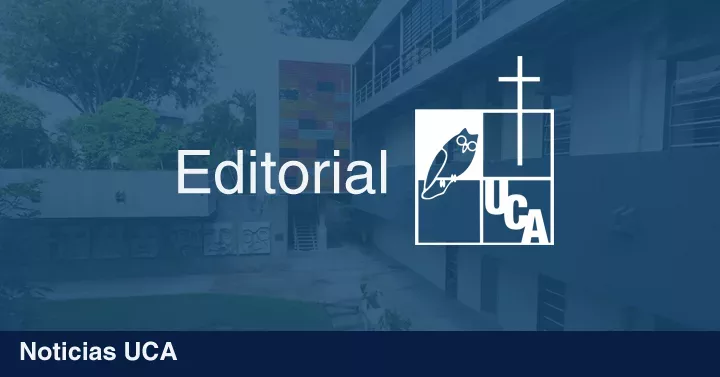Authoritarianism is advancing at breakneck speed in the country, and, predictably, as it has escalated, fear among the population has grown. For many people, that is the price to pay for security, a vital good denied to them for decades. They know rights are being violated, but they prefer that to returning to the past. They prefer to feel free to work and move about. Ignoring or failing to acknowledge this makes it impossible to understand the social base of support that Nayib Bukele enjoys. Security is the cornerstone on which official propaganda rests and with which all manner of measures, even the most unpopular, are justified. What remains to be seen is whether people are aware of where the country is headed and that fear is merely the beginning.
Official propaganda has succeeded in permeating a broad swath of the population. As a result, there are people who, in good faith, believe that the economy as a whole will improve and that the harsh living conditions of the poorest will soon find relief. And that blinds them to the fact that the only economic circumstances improving are those of a select few, tied to the narrow circle that now wields all power. Furthermore, since for many Salvadorans the rule of law was always a distant object, within reach only of minorities, they see no reason to be alarmed by the dismantling of public institutions and the separation of powers. In the same vein, accustomed as they are to governmental corruption—an inherent feature of state administration—they find nothing surprising in the blanket concealment of public information, expenditures included.
But there is another group of Salvadorans who are fully aware of what they support or what they silence. They know precisely where the country is headed, but out of fear or self-interest, they remain quiet or publicly endorse what they once condemned. When this page of history turns, what will the media outlets say—those that, to curry favor with the powerful, fail to report on the raw drama of the innocent imprisoned without the right to mount a defense? What will the academics argue, those who twist reality to align seamlessly with the official script? What will the major business leaders say—once staunch defenders of what they called “the system of freedoms”—who with their silence endorse the corruption, the grave violations of human rights, and the systematic dismantling of democracy? What will become of the judges who interpret the Constitution to say what it does not say and who obey orders rather than the law? Where will they live, those who use the state to enrich themselves while demanding virtue and rectitude from everyone else? How will it be explained to the children that their parents repeated the errors of the past, bequeathing them a country devoid of any future?
UCA: https://noticias.uca.edu.sv/editoriales/cuando-lleguen-las-preguntas
Cuando lleguen las preguntas
El autoritarismo avanza a pasos acelerados en el país y, como es lógico, en la medida en que ha escalado, ha crecido el miedo en la población. Para mucha gente, ese es el precio a pagar por tener seguridad, un bien que le fue negado por décadas. Saben que se violan derechos, pero prefieren eso a volver al pasado. Prefieren sentirse libres para trabajar y desplazarse. Ignorar o no reconocer esto impide comprender la base del respaldo social del que goza Nayib Bukele. La seguridad es la piedra angular sobre la que descansa la propaganda oficial y con la que se justifica todo tipo de medidas, hasta las más impopulares. Lo que queda por aclarar es si la gente es consciente de hacia dónde se dirige el país y de que el miedo es solo el comienzo.
La propaganda oficial ha logrado permear en una buena parte de la población. Por ello hay gente que de buena fe cree que la economía de todos mejorará y que las duras condiciones de vida de los más pobres pronto encontrarán alivio. Y ello les lleva a perder de vista que la única situación económica que mejora es la de unos pocos, vinculados al pequeño círculo que hoy en día detenta todo el poder. Por otra parte, puesto que para muchos salvadoreños el Estado de derecho siempre fue un objeto lejano, al alcance solo de minorías, no hay razón para que les alarme la anulación de la institucionalidad pública y de la división de poderes. En la misma línea, acostumbrados a la corrupción gubernamental, un rasgo que ha sido intrínseco a la administración del Estado, no les sorprende el ocultamiento de toda la información pública, incluyendo los gastos.
Pero hay otro grupo de salvadoreños que son conscientes de lo que apoyan o de lo que silencian. Saben para dónde va el país, pero por miedo o por conveniencia callan o respaldan públicamente lo que antes condenaban. Cuando esta página de la historia pase, ¿qué dirán los medios de comunicación que para congraciarse con el poder no reportan el crudo drama de los inocentes que guardan prisión sin derecho a ningún tipo de defensa? ¿Qué argumentarán los académicos que tuercen la realidad en perfecta coherencia con el guion del oficialismo? ¿Qué dirán los grandes empresarios —antaño férreos defensores de lo que llamaban “el sistema de libertades”— que avalan con su silencio la corrupción, las graves violaciones a los derechos humanos y el desmontaje de la democracia? ¿Qué será de los jueces que interpretan la Constitución para que diga lo que no dice y que obedecen órdenes y no la ley? ¿Dónde vivirán los que usan el Estado para volverse ricos mientras exigen virtud y rectitud a todos los demás? ¿Cómo se explicará a las niñas y niños que sus padres repitieron los errores del pasado para legarles un país sin futuro?
UCA: https://noticias.uca.edu.sv/editoriales/cuando-lleguen-las-preguntas

